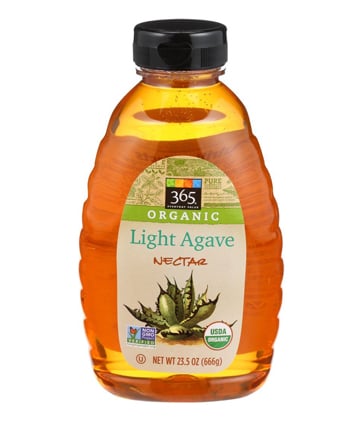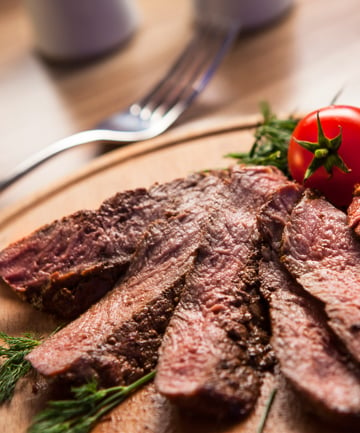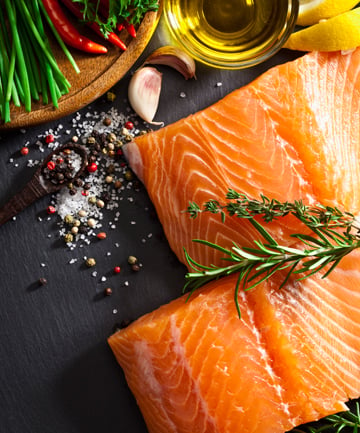"You are what you eat" is a saying worth listening to. Food doesn't just affect us physically, it also leaves an impression on our mental and emotional state. In fact, a growing body of research suggests a connection between eating patterns and depression. "Studies have shown that diets based on whole foods (fruits, vegetables, healthy proteins, whole grains) are linked with a lower risk of depression than diets filled with processed foods (desserts, high-fat processed meats, refined carb, sweets, fried foods)," says Sharon Palmer, RDN, The Plant-Powered Dietitian. "Also, diets filled with anti-inflammatory foods are linked with lower risk of depression."
In other words, if you eat a diet rich in essential nutrients, your body and brain will thank you. To help guide you towards a better mood, here are the foods that nutrition experts recommend eating — and the foods to avoid.
Image via Getty
In other words, if you eat a diet rich in essential nutrients, your body and brain will thank you. To help guide you towards a better mood, here are the foods that nutrition experts recommend eating — and the foods to avoid.
Image via Getty
You might think agave nectar is a great all-natural swap for sugary syrups in your cocktails (after all, it's one of the main ingredients in the classic margarita) but this isn't exactly true. In fact, agave nectar, the stuff that comes from the plant species bearing its name, has extremely high levels of fructose — even more than high-fructose corn syrup — which is not only terrible for you but can quickly lead to a bad mood. "Fructose is not as easily metabolized as glucose and humans were not meant to ingest large doses of it," explains Kristine Arthur, MD, internist at Orange Coast Memorial Medical Center in Fountain Valley, California. "Fructose has to be metabolized almost entirely by the liver and, over time, this causes fatty liver and elevated triglycerides which can eventually lead to advanced liver disease and coronary artery disease."
Lean sources of protein, such as beef, pork, lamb and turkey, are a top source of the amino acid tryptophan, which helps produce serotonin to help boost your mood, says Toby Amidor, MS, RD and best-selling cookbook author of The Easy 5-Ingredient Healthy Cookbook. "Taking these foods out of your diet can minimize serotonin production, which is linked to depression," she adds. Additionally, protein helps keep you feeling satisfied and full for longer periods of time so you'll feel way less "hangry."
Image via Getty
Image via Getty
We know you hate to love them and that they're darn tasty but there's no getting around the downward mood spiral that's sure to ensue after wolfing down a McDonald's or Burger King burger. "Not only do blood sugar levels spike after eating fast food, thanks to their high saturated fat content, but they're also packed with sodium, which affects water retention, increases blood pressure and heart rate," explains Sherry Ross, MD, OB/GYN and Women's Health Expert at Providence Saint John's Health Center in Santa Monica, California. "Depression is more common in those eating fast food regularly."
Image via Getty
Image via Getty
There are countless health benefits that come from eating a diet rich in healthy fats, such as the kind found in your favorite seafood sources. "Specifically, tuna, salmon, mackerel and other fatty fish provide omega-3 fats, an essential fatty acid," explains Amidor. "Omega-3 helps regular brain chemicals, including dopamine, which the brain releases in response to positive, happy experiences and serotonin." Another reason to add omega-3s to your diet is that they reduce inflammation, which leads to an imbalance of flora in the intestines. "Symptoms, although not always apparent, can include bloating, diarrhea or painful digestion — the culmination of which is a real recipe for a bad mood," says Kimszal.
Image via Getty
Image via Getty









